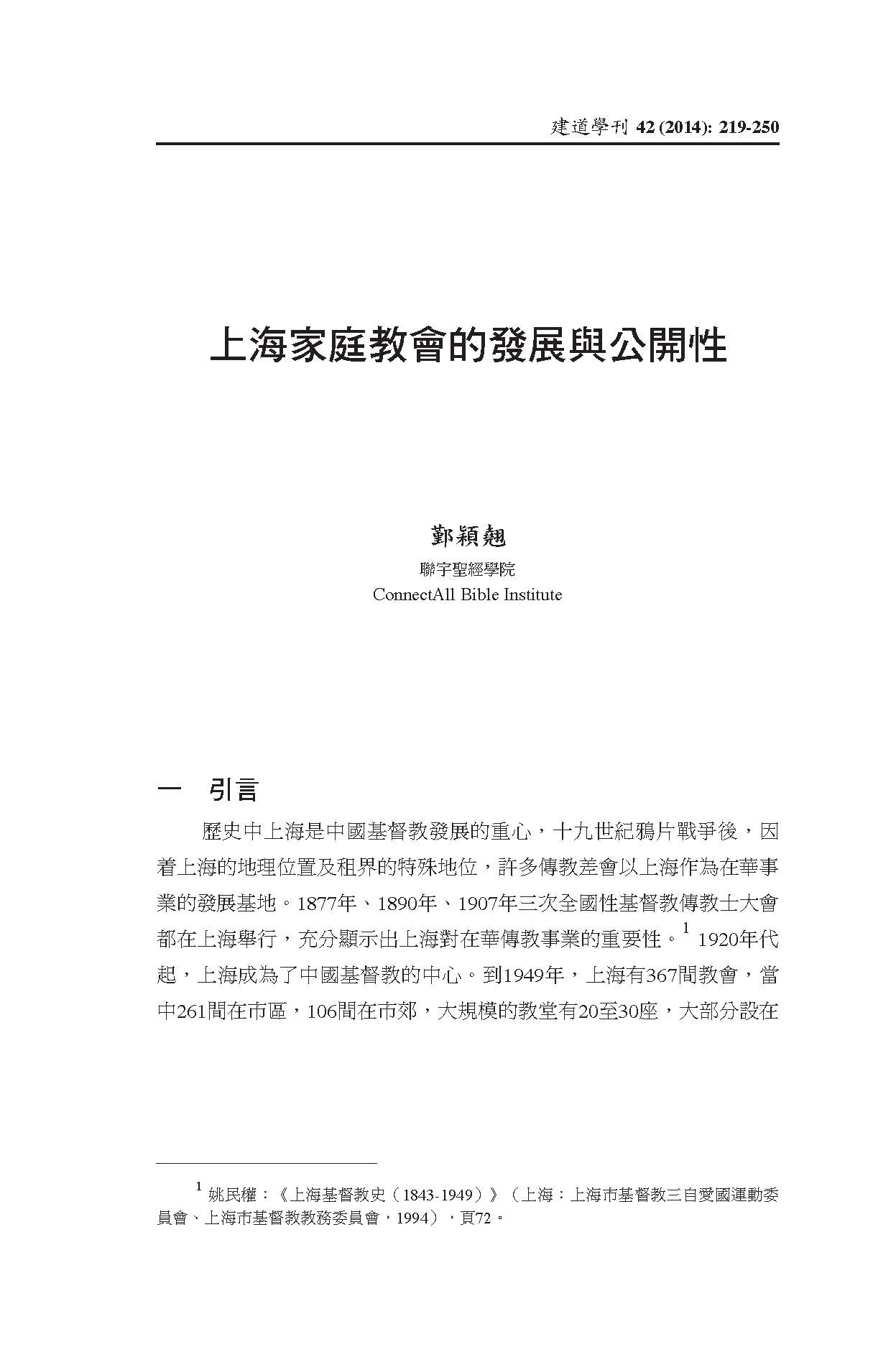上海家庭教會的發展與公開性/鄞穎翹
鄞穎翹
撮要
今天上海是個著名的國際化都市,但宗教自由情況卻落後於經濟及科技 發展。處於這城市的家庭教會,一直傾向謹慎、低調,而且各自為政,彼此之間缺乏聯繫。過去十年卻有個別教會漸漸公開化,這些教會亦銳意打破傳統, 團結起來成立牧者團契,其中一個是「漁夫團契」。但上海家庭教會的公開程度,與國內另一國際化城市北京的家庭教會相比,仍有一定距離。這是甚麼因素使然?為甚麼一些上海家庭教會又願意走公開路線?這些教會又有甚麼特徵和共通點?它們如何面對政府的壓力?本文首先追溯漁夫團契其中三間教會的發展歷程,並探討教會持守的理念,從而對上海家庭教會的公開性有更深入的了解。接着,本文將更宏觀地剖析上海家庭教會的發展與狀況,並與北京的家庭教會作出比較,繼而勾勒出一幅中國城市教會更細緻的圖畫。
ABSTRACT
Today’s Shanghai is a renowned internationalized city, but its state of freedom of religion lags behind its economic and technological developments. House churches in Shanghai tend to be cautious and maintain a low profile. Their connection with each other also tends to be weak. The past ten years have seen some churches breaking the tradition, opening themselves and forming pastors fellowships, one of which is the Fishermen’s Fellowship. But in comparison with house churches in another internationalized city – Beijing, house churches in Shanghai are still apparently less open. What is the cause of this phenomenon? Why would some house churches in Shanghai choose to be more open? What do these churches have in common? How do they cope with pressures from the government? This paper will firstly probe into the development and core concepts of three of the churches in Fishermen’s Fellowship, thereby having a glimpse of the general openness of house churches in Shanghai. Then the paper will examine the development and situation of house churches in Shanghai from a macroscopic view, and compare these churches to those in Beijing, thereby attempting to paint a more detailed picture of urban churches in China.
原載於《建道學刊》42期(2014年7月),頁 219-250。
Latest Articles
新手牧者研究計劃(三):新手牧者的身心靈狀態 / 盧慧儀
2025 年 11 月 19 日
個體與關係:滕近輝思想中「深化」的靈性觀 / 倪步曉
2025 年 11 月 18 日
香港九龍塘基督教中華宣道會之起源和發展史/陳智衡
2025 年 10 月 20 日
Highlights
[電子書]困境與抉擇:「建道研究中心30週年誌慶」跨學科研討會論文集/廖炳堂、倪步曉主編
2025 年 1 月 2 日
從梧州到長洲:建道神學院125年的挑戰與恩典 / 陳智衡
2023 年 10 月 1 日
微小教會的見證/高銘謙
2023 年 6 月 1 日







